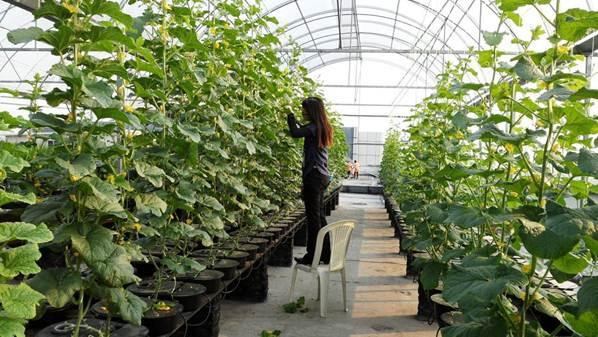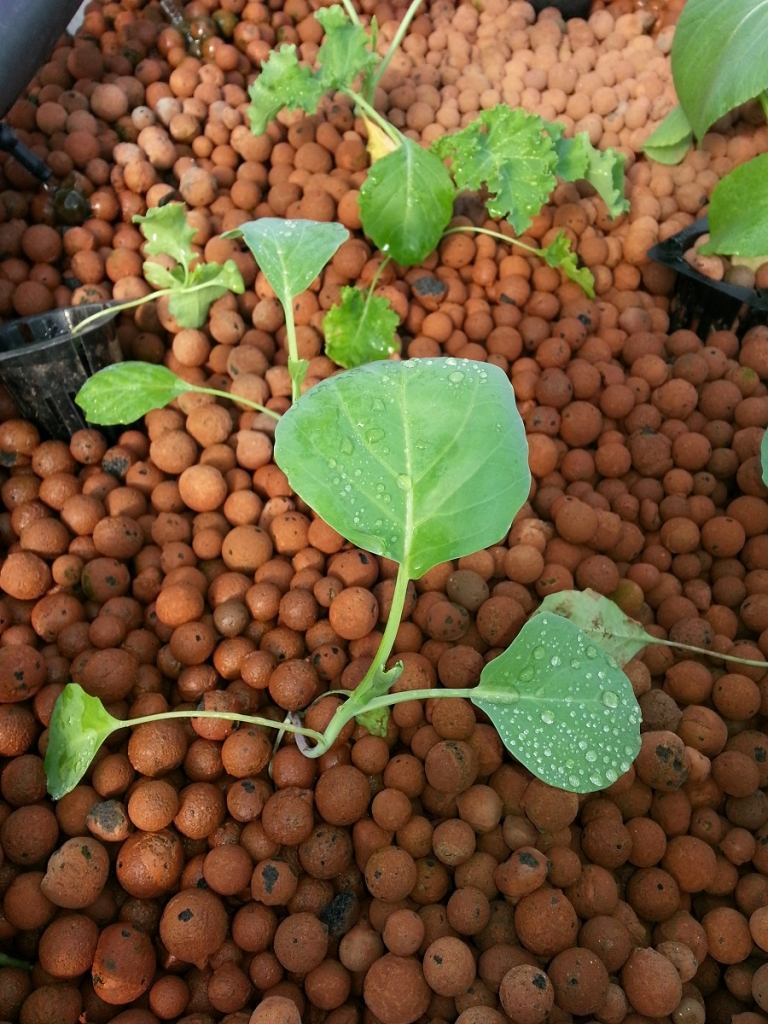Things You Need To Know About Hydroponics
Hydroponics is a method of growing plants in a soil-free media, fed with a mixture of nutrient and water. Instead of soil, an inert, sterile growing media is used, and combined with nutrient enriched water, plants are provided with the exact minerals and nutrients they require. Unlike soil, plants do not need to continuously grow their root system in search of water, nutrients and oxygen. Instead the energy is spent on leaf, flower and fruit production. For this reason, hydroponic plants will develop optimum levels of appearance, yield and flavour. Hydroponics allows growers to yield 2 to 10 times more from their plants, in half the space and half the time. Read on to find out why.

Hydroponics is water efficient
Trials have shown for some hydroponic crops, there is 90% water saving compared to soil-based farming. This is because water is delivered directly to the root zone, and except for a little evaporation, there is no wastage during a plants growth. When watering plants in soil, there is water run-off, evaporation by the sun, and water loss within the soil to outside of the root zone.
After the beneficial minerals have been taken from the water, hydroponic water may be discarded in an environmentally beneficial manner. Discarded hydroponic water is great for grasses, reeds and native plants. At the Aqua Gardening shop, a native lime tree is grown with the discarded water from hydroponic displays and trials.
Hydroponics promotes faster growth
- Oxygen in the root zone
Plants grow more slowly in soil for a number of reasons. One reason is over-watering. Over watering, or poor drainage, prevents oxygen reaching the root zone. As important carbon dioxide is to the leaf of a plant, oxygen is equally important for the roots. Without oxygen in the root zone, the plant cannot grow. Hydroponic media is designed to have high pore space for oxygen to penetrate, and to drain freely. There is only one chance to add air and pore space to a soil for cropping, and that is at the start when a field is ploughed prior to planting out.
- Tailored nutrient solutions
A plant grown in soil absorbs it's nutrients from the soil. To provide nutrients in hydroponics, plants are fed a solution of minerals, chelates and/or organic compounds in their water feed. This nutrient is adapted to the type of plant being grown, and the stage of growth of the plant. The plant absorbs the minerals and nutrients from the solution through its roots. With the correct dosage of tailored nutrient, the result is faster growth, and a larger overall plant with reduced root space used.
Hydroponics has a reduced footprint
Because the roots of plants grown hydroponically are smaller, more plants can be grown in the same area. Hydroponic farms can plant up to four times more crops in the same space as traditional soil farming, which is a major reason why many farms and home growers use hydroponics.
Reduced disease and pests in hydroponics
The benefit of a sterile grow media is that there are no soil bacteria or viruses are present. Most grow medias are reusable after sterilisation, and are easy and safe to handle. There are no pathogens or foreign weeds present in hydroponic media, that attack the roots or plant itself. In contrast, potting mix often has pest larvae present and sometimes disease depending on its source. A hydroponic plant provided the perfect mix of water, nutrient and oxygen is also stronger and has a better immune system to fight disease and pests.

Healthier produce grown with hydroponics
The use of pesticides, herbicides and fungicides is uncommon in hydroponics because there is no soil borne diseases or pests - growers have complete control of the growing environment. Those used in traditional farming are not only present in the farm produce, but cause damage the environment and negatively affect our health even without being eaten. Weeds are not introduced in a sterile grow media, and if they do find a way into a system, they are easy to control. Organic pesticides and fungicides are a common and effective choice for growers.
The Advantages of Hydroponics for Plants
- Plant Yield - from twice to 10 times more than soil
- Plant Quality - larger, better and healthier
- Plant Growth - faster, with no seasonal restriction
- Plant Nutritional value - no deficiencies or toxicities
- Plant Disease - no soil bacteria or viruses
- Transplanting - easy with minimal problems
The Advantage of Hydroponics for the Environment and the Grower
- Environmental impact - safe for the environment, media may be reused
- Water required - as little as 1/10th that of irrigation in soil based farming
- Cost - once setup it will run indefinitely without little additional investment
- Convenient - adaptable for small spaces and a reduced footprint
- Sanitisation - easy, safe and able to be sterilised
- Man-made tables - make the gardening work area a comfortable height
So why hasn't everyone started using Hydroponics?
It is a common myth that anything chemical, artificial or man-made is harmful to a consumer and the environment. In fact, the opposite is true for hydroponics. Let's consider hydroponic nutrients and the space required to grow crops.
Hydroponic nutrients are made from purified mineral salts and/or organic matter, and not from 'chemicals' which is commonly perceived. In soil, micro-organisms decompose organic matter into ions (eg. NPK ? nitrogen, phosphorous and potassium) that are absorbed by plants. Hydroponic nutrients contain the same ions in mineral salts or organic forms that are absorbable by plants. These ions in the nutrient are identical to those found in (a perfect!) soil. In addition, advanced hydroponic nutrients (such as Bloom Advanced) use a combination of organic and mineral salt sources to increase the micro-organism activity in the root system and boost growth.
Hydroponics is also artificial, but stigma attached to this word is not warranted. The benefits of an artificial, man-made system are the control over where the crops are grown and the reduced space which is required to grow them. Take organic refined sugar, this is also an artificial and man-made product, but common misconception is that this sugar is safe for human consumption. In fact, organic refined sugar is a poison people regularly ingest.
